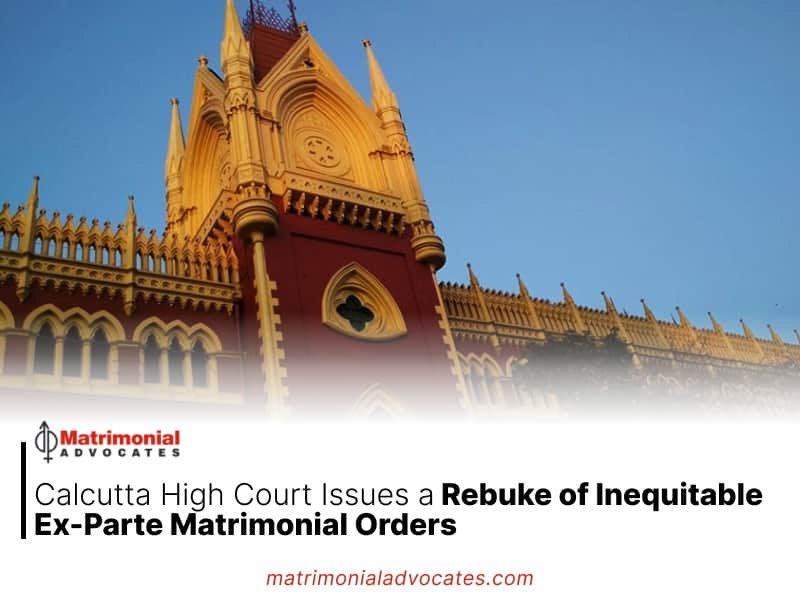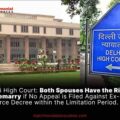
Justice Shampa Sarkar made the observation while dealing with a husband’s plea challenging at least four orders passed ex-parte and in favour of his estranged wife in a matrimonial suit.
The Calcutta High Court has recently observed issues concerning the equity of ex-parte orders in matrimonial proceedings. These orders, rendered without affording both parties the opportunity to present their arguments, bear the potential for significant societal, financial, and emotional repercussions, as exemplified in the case of Surya Chandra Mishra v. Chitrangana Debnath.
Justice Shampa Sarkar made this observation during her adjudication of a petition submitted by a husband. The petitioner contended that on a minimum of four occasions during the current year, the court extended the deadline for his wife to submit her written statements in their matrimonial dispute without granting him the opportunity to present his viewpoint.
The Court expressed its disapproval of this practice, thus shedding light on its concerns.
“An ex-parte decision in the matrimonial suit would be unjust. Such decision would not only have a social impact but also a financial and a strong emotional impact.”
The husband further alleged that these orders were issued in the absence of any formal application for an extension of time by his wife. He contended that the issuance of such orders should be conditional upon the submission of a formal application.
Nevertheless, the Court maintained a divergent perspective on this matter.
“In my opinion, the contention of the petitioner is technical. Rules of procedure are handmaid of justice. They are used as a shield not as a sword. Thus, even if there was no formal application for extension of time to file the written statement, the learned court exercised discretion and allowed the respondent to file the written statement.”
The Court proceeded to assert that the optimal realization of justice necessitates affording both parties the opportunity to actively engage in legal proceedings and fully contest the lawsuit.
In its ultimate determination, the High Court declined to vacate the interim orders issued by the family court and issued directives for the family court to expedite the resolution of the case within a one-year timeframe.





